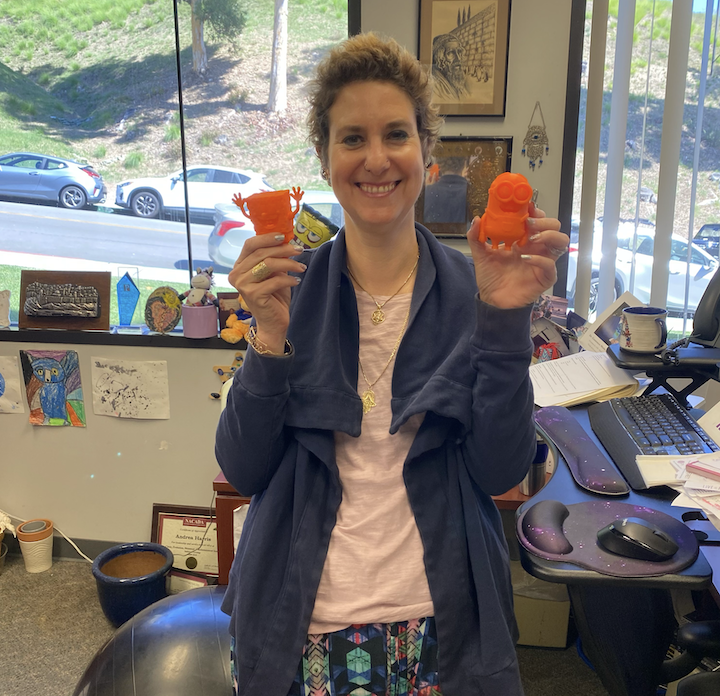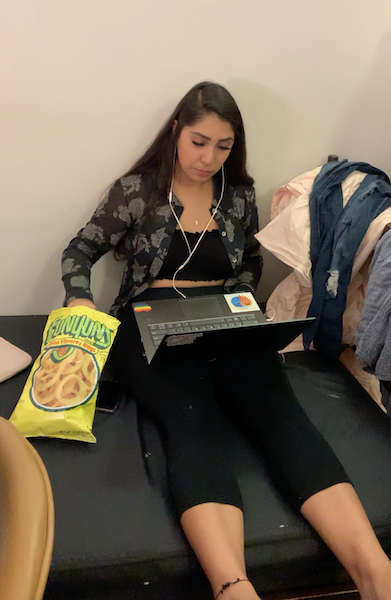
First-years at Pepperdine are learning to navigate the uncharted waters of college life.
The experience at Pepperdine differs from student to student depending on their background, with some smoothly transitioning to campus life while others face challenges. The university’s support and guidance can play a pivotal role in helping students settle in during the early stages of college life.
“Adjustments are a typical thing for college people to go through, but it’s also so individualized,” said Andrea Harris, senior director of Student Administrative Services. “Some people can go there and they’re fine in 30 seconds.”
Harris said she hopes that each individual can find their place and succeed at their own pace.
Pepperdine provides resources that make it easier for first-years to transition and adjust.
The retention rate at Pepperdine for first-years is 87%, Harris said.
A Pepp Post poll of 50 first-year students found that 70% of students were adjusting well while 30% indicated they were struggling with one or more aspects of college life.
Students ranked how well they were adjusting on a scale from one to five, with five indicating the student is adjusting extremely well.
Students share how they are adjusting
More than 80% of first-years said they have been able to make friends, they have joined clubs or other co-curriculars and they are regularly attending campus events.
But there was still a large number of students — 46% — who indicated they either were unsure if they fit in or definitely did not fit in.
The majority of students described Pepperdine as upper class, predominantly white, academically rigorous and super religious.
A little more than half of students polled have found a church group and slightly less than half rushed Greek life.
There was a minority of students, roughly 15 to 25% depending on the question, who indicated they were struggling in certain aspects.
Half said they are not eating well and one-third of them are not sleeping well.
The key to resilience and having a successful college life is eating, sleeping and exercising well, Harris said.
Roughly 30% of students indicated they were having friction with roommates or suitemates.
Students learn to adjust to college life
While entering into a new environment can be easy for some students, others need more time to adapt.
Elayna McClure, first-year political science major, has had a smooth transition into her college life. She said she appreciates the academic excellence and spiritual life that Pepperdine offers. She feels a strong sense of community and belonging.
“It’s a bit overwhelming at first, but after that first week, I don’t know,” McClure said. “It just seemed like everyone here, while we’re not like the exact same, it’s kind of like we all strive to achieve our goals.”
First-year business major Ethan Ott went to an all-boys high school before coming to Pepperdine.
“I feel like there hasn’t really been a big gap in my social ability or just whatever in general,” Ott said.
Ott said he has been able to make friends and is adapting well.
In comparison, Adia Anderson, first-year business administration major, has experienced some roommate challenges, including different sleeping schedules and sharing a living space.
“I am an only child, so it’s been a transition having shared common areas with so many people,” Anderson said. “And roommate wise, sometimes the sleeping schedule can be a challenge depending on when she wakes up versus when I wake up and then bedtime.”
First-year accounting major Charlie Leeds said that attending Pepperdine as an Orthodox Jewish person gives him a different perspective
“I’m learning about the new cultures around me,” Leeds said. “It’s amazing, but it’s definitely taking some adjusting to.”
Additionally, Leeds has issues regarding the food the campus provides. He thinks there’s not much accessibility when it comes to kosher and vegetarian food.
“I keep a kosher diet,” Leeds said. “I’ll go to the caf and something as simple as french fries will have meat allergens in it.”
Leeds said he would like to see more food options that accommodate different cultures and backgrounds.

OneStop offers essential services
OneStop is an office located in the Thornton Administrative Center on campus that administrators created to provide students with academic advising, resources and guidance in various aspects of university life. They are dedicated to simplifying and enhancing the overall student experience, Harris said.
Academic advising helps students choose majors and succeed in their academic and professional goals.
The poll found that 44 students had used OneStop while six students hadn’t.
Finding ways to make the most of school resources is crucial for a successful first-year in terms of living, socializing, and academics, Emma and Cole Claybourn wrote in a June 21 U.S. News article.
“There’s a lot of data that suggests if people meet with someone early on and get a plan going, they know to feel confident and comfortable enough to come back later when there’s an obstacle,” Harris said.
She values creating personal connections with students rather than just focusing on providing academic advice.
Ott said he can always go to Onestop when he is in need of guidance — personal or academic.
“What I want for students is to come into this office and see someone with whom they can relate,” Harris said. “Someone who can just be a person for them. If you come to OneStop, there are four people at the front, you are going to find your person.”
Harris said she understands why some students may struggle with adjusting to college — whether it’s not making it into an organization or realizing the people they are living with are different than expected. She understands that although a majority of students share a common faith, not everyone does and this can make some people feel like they’re an outsider.
“Chapel may not be everyone’s tea if they’re not religious,” Harris said.
Despite this, Harris said she firmly believes that students can do their best in school if they are being their most authentic selves.
Students find wellness in mental health with counseling
During a student’s first semester at Pepperdine, changes are happening all around them.
Pepperdine recognizes the importance of mental health — the Counseling Center is dedicated to nurturing student’s emotional well-being throughout their college journey, Counseling Center Therapist Chiconia Anderson said.
A poll found that 29 students have not used the counseling services offered on campus while the ones who did said it did the job or was super helpful.
Chiconia Anderson urged students to seek counseling services for academic stress, including adjusting to university workload and expectations.
Chiconia Anderson said students may face struggles with anxiety, depression, loneliness and identity exploration as they navigate new social environments and become independent young adults.
“We do a lot of group therapies that are on Zoom and also in person,” Chiconia Anderson said. “We have processing groups and then we have at least about 10 or more support groups.”
Additionally, the Counseling Center provides workshops and seminars for professors. This helps them understand mental health for students and know what their roles are in helping facilitate those particular students.
NSO guides students to a new beginning
New Student Orientation serves as an initiation process. This aids incoming students in building a sense of belonging and familiarity within the Pepperdine community, said Nathan Thomas, a residential advisor and sophomore philosophy major.
RAs are available to offer guidance and support within residence halls.
Thomas works at Seaside and was involved in NSO. He helped first-years during moving day and actively participates in social events to help students make connections.
“The hardest things that first-years face is just the fact of being in a new environment,” Thomas said.
Thomas said NSO is a good way to interact with other first-years and familiarize them with college life.
Unlocking spiritual potential through RISE and seminars
Pepperdine incorporates Christian spirituality into the curriculum. The school creates RISE programs and first-year seminars to enrich student’s education experiences. This contributes to their personal and intellectual growth, RISE Director Stacey Lee said.
The purpose of RISE is to instill students with achievable, realistic and relevant goals for personal growth.
Lee said RISE provides resources and knowledge to first-years hoping they feel empowered enough to access those resources during their time at Pepperdine.
“Rise was created to get upstream so we don’t want to just continuously have so many people drowning in the water,” Lee said. “We want to figure out what we can do to avoid them falling into the river in the first place.”
Adia Anderson said her first-year seminar is her favorite class and that she looks forward to going twice a week every week.
Josh Craton, associate director of Residence Life and first-year seminar professor, said seminars provide students time to interact with their peers. This can help build connections and relationships that help first-years adjust to college life.
Craton said that although every first-year seminar looks different, they all contain some similar elements that include the Christian mission and discovering the strengths, values and goals a student has.
Nancy He completed the reporting for this story in Jour 241 under the supervision of Dr. Christina Littlefield and Dr. Theresa de los Santos. Dr. Littlefield supervised the web version of the story.



